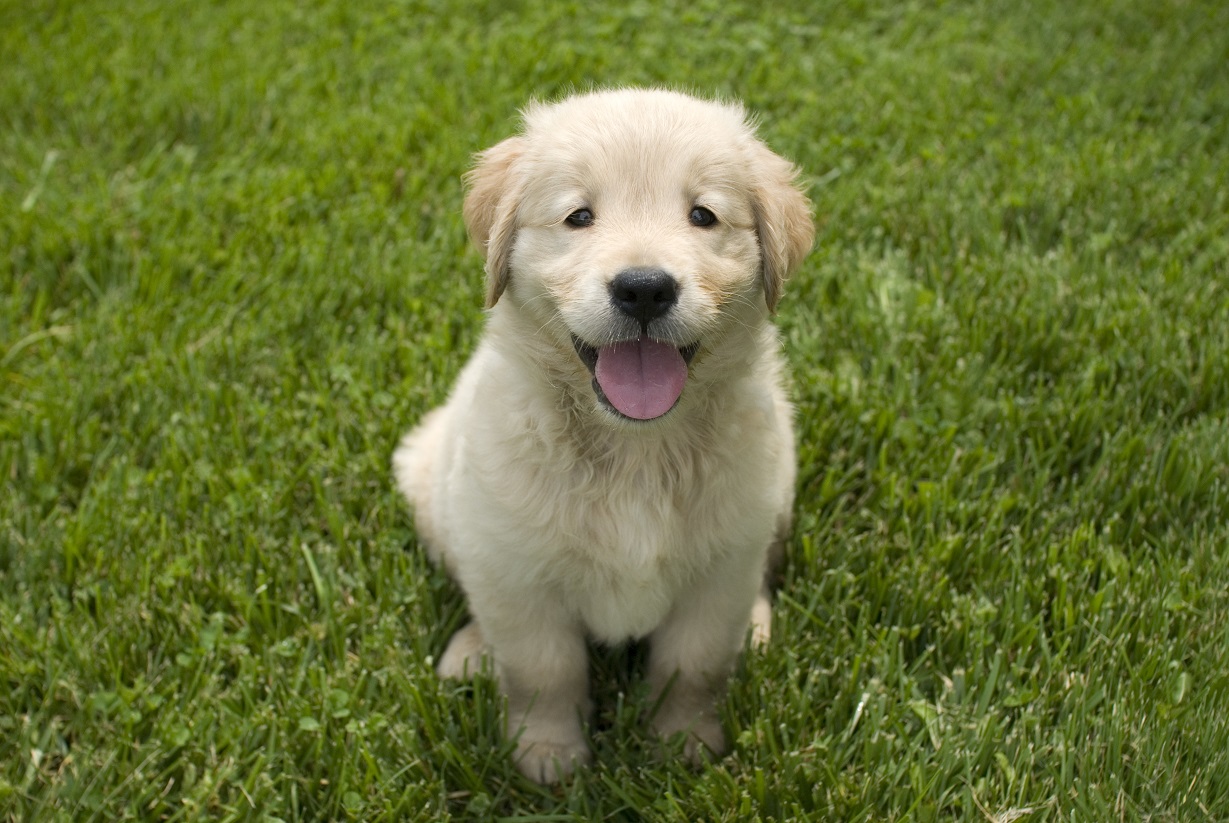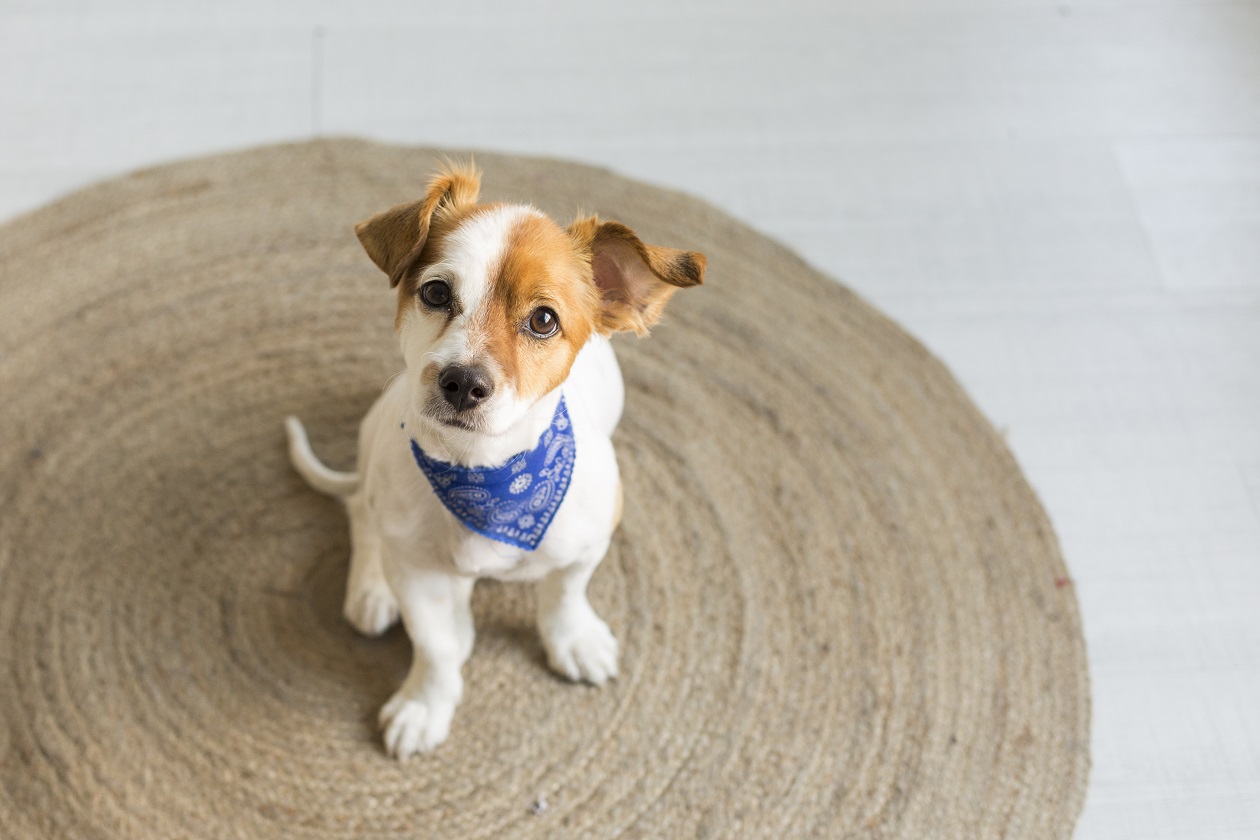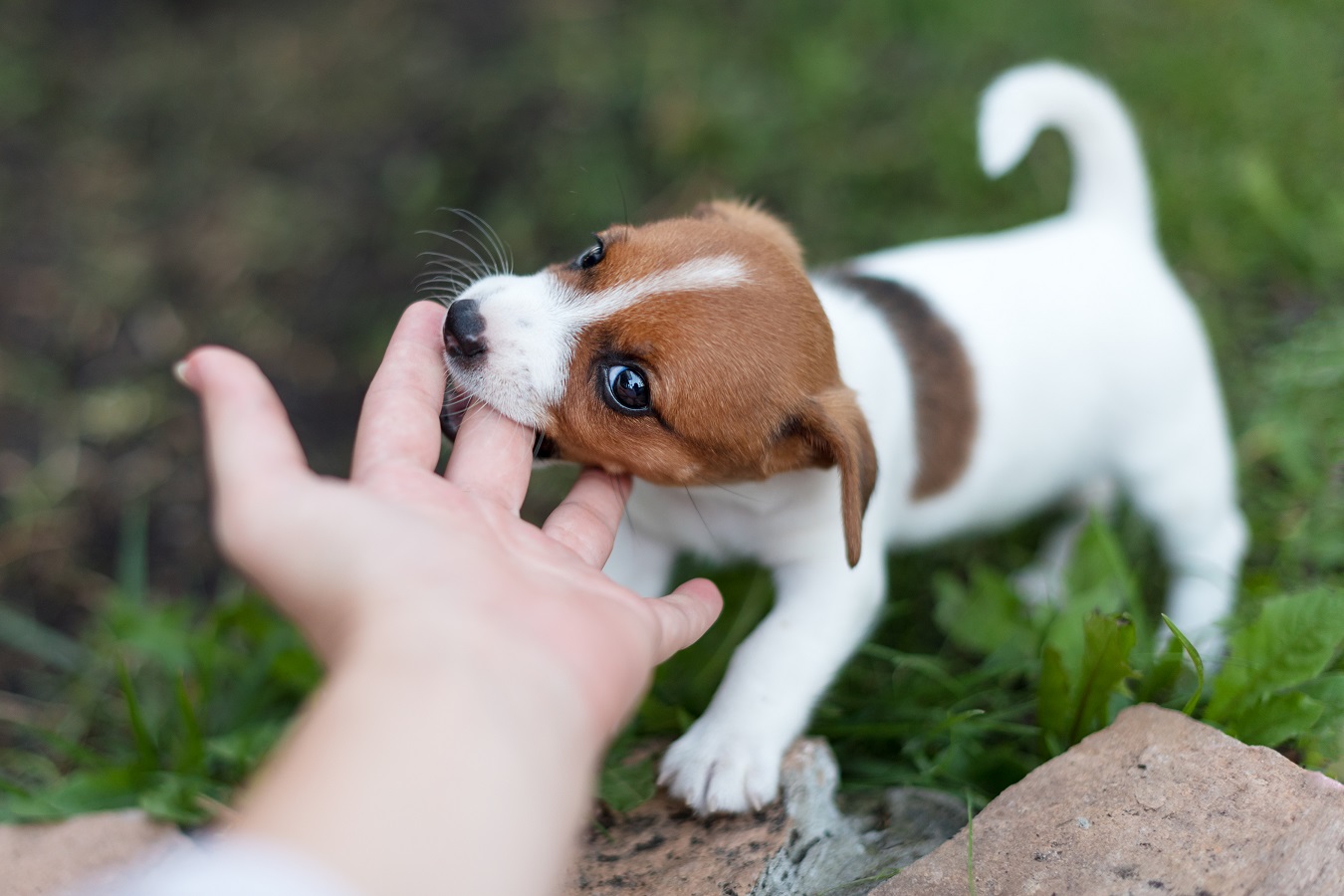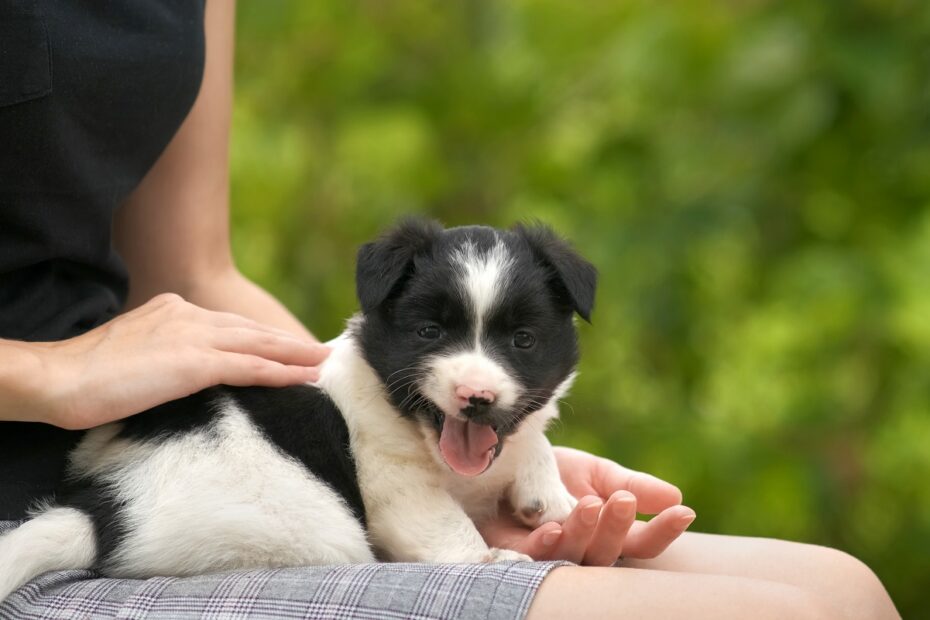If your puppy bites when picked up, you’ve got a problem. It might not be a big problem, but it is likely to be a painful one.
Pups might be small, but their mouths are packed with tiny little razors. If any of those razors decides to attach themselves to your fingers, you can bet it’s going to hurt.
But the real problem isn’t a sore finger. It’s the thought that your little puppy might have an aggressive streak. When we bring a new puppy home, it’s meant to be a joyful time. If your pup decides to make your hand a chew toy, those joyful feelings won’t hang around for long.
Ultimately, all pups bite to some extent. Whereas toddlers discover their environment with their hands, puppies do it with their mouths.
“Play biting” is a normal and natural part of being a pup, and is something that can usually be trained away easily and simply.
But how do you know when a puppy’s biting can be explained away as part of the teething process and when it indicates something more serious?
And if they’re biting for something a little less innocent than teething, how do you address it?
The good news?
Regardless of the motivation for your puppy’s behavior, now’s the perfect time to address it. At this age, your pup’s still learning. Their habits won’t have become ingrained. They’re open to training and willing to adopt new behaviors.
The first step in tackling the problem is finding out what’s causing it in the first place. The second is to address it with the appropriate solution.
Both of those things can take a little time. Fortunately, there’s one thing you can start doing straight away…
…Teach your pup how to be calm.
So before you do anything else, I’d highly recommend checking out the 5 step-by-step calming exercises from Dan Abdelnoor over at The Online Dog Trainer. (see video below)
If your pup is biting out of anxiety, over-excitement, or anything else, these exercises will help them keep their emotions in check.
Just as importantly, they’ll put them in the kind of controlled, focused state that’s going to help your training sessions go with a bang.
Anyway, here’s the video link to take a look: Click Here To Discover How To Finally Stop Your Puppy’s Frustrating, Aggressive Biting Problem… Even If You’ve Tried & Failed Before!
(video will open in a new window)
Why does my puppy bite when picked up?
Around 4. 5 million bites are reported in the US every year. Most of those bites are delivered by a familiar dog in the home.
But while it’s clearly not uncommon for a dog to bite a member of their family, that doesn’t make it any less serious… or less scary.
As with most things, the first step in tackling the problem is working out exactly what’s causing it in the first place.
In fairness, finding out the reason for your pup’s behavior isn’t always easy. Ultimately, all puppies are unique. Even if you have a friend with a puppy who’s doing exactly the same thing as yours, there’s no guarantee they’re doing it for the same reason.
But just because something’s tricky doesn’t make it impossible. Think about your pup’s background, personality, and the context behind their behavior.
Once you’ve done that, take a look at some of the following explanations.
Do any trigger a lightbulb moment?
Fear or Anxiety
Pups are tiny. Without knowing you personally, it’s a reasonable bet to assume you’re a lot bigger than them. Heck, even your kids probably seem like giants in comparison. And that’s scary, at least to your pup.
Being picked up and pulled around by someone who makes them feel even smaller and more defenseless than ever is frightening. They don’t know what you’re doing when you pick them up, and they’ve got even less idea of what you intend to do with them.
They can’t argue, they can’t ask questions, they can’t request you put them down. Basically, they can’t do anything except get scared, anxious, and bitey.
Negative Associations
If you (or more likely your kids) aren’t used to handling dogs, your pup is unlikely to relish the idea of being picked up.
Kids might mean well, but picking up a puppy gently and in a way that doesn’t hurt them is an art form. If they haven’t yet mastered that art, your pup may have developed some less than positive associations with being handled.
Lack of Previous Experience
Most breeders will routinely pick up a puppy, hold it, walk around with it in their arms, and cradle it. Most good breeders, anyway,
Why?
Because that’s what the puppy can expect to happen when it moves into its new family. And the earlier it gets used to the experience, the less challenging it’s going to be in the future,
The problem is, not all breeders are good.
If a pup has come to you without any experience of being handled. Then the prospect of being picked up can be new and frightening enough to set them on edge…. and when a pup’s on edge, it doesn’t take long for the fangs to come out.
Related Post: How To Stop An Aggressive Puppy Biting – The Quick & Easy Way

Pain
Pups are delicate. They’ve got tiny, fragile limbs that are all too easy to injure.
Perhaps one of your kids accidentally dropped them last time they picked them up. Or maybe they’re just feeling under the weather.
Regardless of the cause, if your pup is in pain, they’re unlikely to want to do anything but hide away somewhere safe and comfortable. If you or anyone else picks them up, it could make the pain worse.
Understandably enough, more pain for them might mean more pain for you in the form of a bitten finger.
Lack of Socialisation
Dogs might be pack animals, but don’t make the mistake of thinking they’re all social butterflies from day one.
Like almost every other species, they need to learn how to behave and interact with other animals and people.
If they don’t receive the early socialization they need, it can have a big (and negative) impact on how they react to different people, places, experiences, and things.
If your pup’s experience of the world has been limited, even something as minor as picking them up can make them feel uncomfortable enough to go on the defensive.
Reading Your Pup’s Body Language When Picked Up
If you want to stop an activity with your pup escalating into something painful, it pays to learn canine body language.
Don’t assume that just because they aren’t yelping, they aren’t hurting.
Likewise, don’t assume they’re going to hang around forever waiting for you to figure out what they’re feeling. If it’s bad and they want it to stop, there’s a good chance they’ll engage their teeth.
Fortunately, they’ll usually give some clues beforehand.
Yelping and growling are two of the most obvious signs of distress, but there are plenty of other ways your pup will express their discomfort.
Struggling, averting their gaze, licking their lips, showing the whites of their eyes, yawning, a rigid posture…. all of these are signs that your dog is uncomfortable.
If you want to stop their discomfort from turning into a painful experience for everyone concerned, it’s time to stop what you’re doing and reassess.
Once you learn the signs of stress, you’re one step closer to handling it.
Related Post: Why Does My Dog Bite Me When I Pet Him? – 5 Reasons Your Dog Bites

What To Do If Your Puppy Bites When Picked Up
If your puppy bites when you pick them up, the first thing to do is stay calm. Distressing though it is, it’s really not uncommon. In most cases, it can be trained away in a few easy steps.
The second thing to do is to take action now. Normal or not, biting isn’t something that can or should be tolerated. The sooner you start taking the appropriate measures to address it, the fewer problems you’ll have in the long run.
The third thing to do is to get your pup in the calm, ready-to-train state that’s going to make everything that comes next that much easier.
Again, the 5 step-by-step calming exercises from the Online Dog Trainer have been created specifically to help your pup calm down and take control of their emotions.
If you’re dealing with an anxious, hyper, and easily excitable pup, you’re going to notice a big difference in the behavior once you introduce the exercises.
From there, you can start moving towards a positive change with these strategies.
Identify the Root Cause
If your pup is biting because they’re in pain, they’re going to need a different approach to one who’s biting out of fear. If you’ve any reason to suspect they’re unwell or injured, get them checked out by a vet before anything else.
If your vet gives you the all-clear, start thinking about what could be motivating their behavior.
- Have they only recently started biting, or is it a new development?
- Do they only bite when they’re picked up, or is it more generalized?
- Have your kids been taught how to handle them with care, or is there a chance they may have accidentally hurt them?
- How well socialized is your pup?
- Have they been taught how to behave across a good range of different situations and with a range of different people?
Once you’ve got a better idea of what’s behind the behavior, you’ll have an easier time matching the solution to the cause.
Handle with Care
Bites may seem unprovoked, but more often than not, there’s at least a degree of provocation, even if you don’t notice.
If your puppy objects to being picked up, it could just be that you’re doing it in the wrong way. Make sure that whenever you pick your pup up, you follow the right method.
For puppies under 25 lbs, position your dominant arm under their chest, between their front legs. Tuck their back end between your arm and your torso.
If they’re between 25 and 40 pounds, position your dominant arm behind their back legs and your other arm around their chest. Use your chest for support as you lift them.
Make sure that the rest of your family is aware of the method. If your kids are young, always be on hand to supervise any interactions.
Teach Your Children Well
Kids rarely mean harm, but their over-enthusiasm can sometimes lead to exactly that.
Regardless of how young they are, it’s never too early to teach kids how to treat dogs with respect. Not only will this reduce the risk of injury, but it’ll also stop your pup from developing negative associations as a result of too much rough treatment.
Make sure they always ask permission before picking the puppy up. Tell them that if the puppy starts to struggle or show signs of discomfort, they should let them go.
They should also know to never pick up an injured pup on their own. But to get you or another adult to help instead.
Keep it Positive
No one wants to be bitten, but how we react to that bite can have a big impact on how likely it is to happen again.
While it’s important you manage the behavior appropriately, scolding or punishing your pup will only lead to anxiety and fear.
The aim of the game is to reduce any negative associations they have with being picked up, not increase them.
Work on building positive associations by rewarding your pup with a special treat each time they react calmly to being handled.
Only give them a treat when they’re calm – offering them one when they’re struggling or nipping at you to won’t help. To give yourself the best chance of catching them in a calm, controlled mood, remember to keep working away at the 5 step-by-step calming exercises from the Online Dog Trainer.
Try Puppy Socialization Classes
Socialization is a crucial part of your puppy’s education. Without it, they may always have problems adapting to new situations and environments.
A puppy socialization class is a great opportunity for your pup to interact with a variety of other puppies of every size and breed. The environment is safe, controlled, and perfect for teaching your pup through their interactions exactly what’s acceptable and what isn’t.

Wrapping Things Up
Welcoming a new puppy into your home should be a time for joy. I say ‘should.’ The problem is, there’s often a world of difference between our expectations and reality. And believe it or not, that’s not your puppy’s fault.
Being bitten by a puppy is never pleasant, but it’s really not unusual. The good news? It’s also not something you’ll have to live with forever.
With the right strategy and the right combination of patience and consistency, tackling the behavior will be a lot less stressful than you think.

